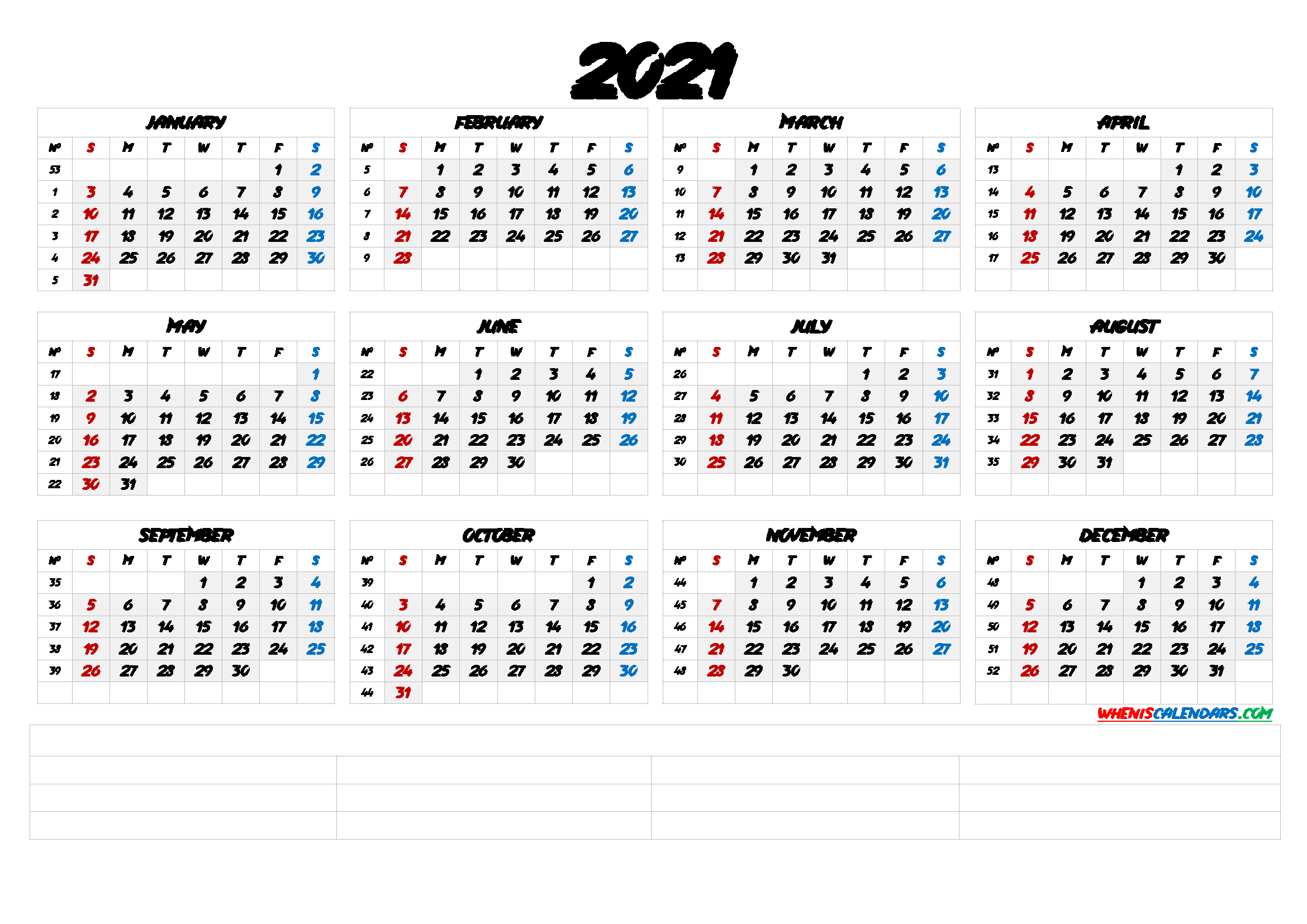
2021 week number calendar how to#
For example, as you can see in the image below, even though the ISO-8601 does not use Months, truncating the ISO date at 'month' will display the first iso-week of the Gregorian month.Ĭreate a 4-4-5 calendar with ISO-8601 date functionsįollow along with these steps to learn how to implement a 4-4-5 calendar in Tableau Desktop.

The DATETRUNC calculation will truncate an ISO-8601 date to the nearest ISO level. When using DATEPART, the resulting calculation will return Gregorian dates unless you use the iso-year, iso-quarter, iso-week, or iso-weekday date parts. When using DATENAME, the resulting calculation will return Gregorian dates unless you use the iso-year, iso-quarter, iso-week, or iso-weekday date parts. For example, adding one month to an ISO-8601 date will be reflected in the iso-week changing. If the DATEADD and DATEDIFF calculations are called with a non- ISO-8601 date value (such as day or month), the resulting field will truncate an ISO-8601 date to the nearest ISO level.

When a date dimension is using the ISO-8601 Week-Based calendar, only the following date functions will reflect the ISO-8601 Week-Based calendar. ISO-8601 Weekdays always start on Monday. The ISO-8601 Week-Based calendar does not use Days. Each ISO-8601 year is either a Long or a Short year, with 52 or 53 weeks depending on when the ISO-8601 year begins. Unlike the Gregorian calendar, there are no weeks that extend across years. Many retail and financial systems divide ISO-8601 Quarters into three segments of 4-4-5 weeks, though other segment systems also exist.Īll weeks in the ISO-8601 Week-Based calendar have exactly 7 days, start on a Monday, and each week belongs to single year. The ISO-8601 Week-Based calendar does not use Months. The first three quarters in the ISO-8601 always have 13 weeks in them, with the last Quarter having either 13 or 14 weeks in it, depending upon the start of the next ISO-8601 year. This can cause some discrepancy in years between the two calendar systems when very close to the beginning of January. Gregorian calendars always start the year on the 1st of January. This may mean that the year does not start until January 4th in some cases, or may start in late December in others. ISO-8601 years always start on the first Monday closest to January 1st. Use of the Fiscal Calendar depends on the specific case.ĭifferences between ISO-8601 and Standard Gregorian calendars Whether a given level of a date dimension is affected by the In the shelf, right-click a date dimension (Ctrl-click on Mac), and select ISO-8601 Week-Based. įor each date field on the shelf, you can set the calendar type separately. Set the Default calendar field to ISO-8601 Week-based.

Right-click (Control-click on Mac) the data source in the Data pane to open the Date Properties dialog box.

To set the ISO 8601 calendar for a data source, follow these steps: Unlike the Gregorian calendar, ISO-8601 calendars have a consistent number of weeks in each quarter and a consistent number of days each week, making the ISO-8601 calendar popular when calculating retail and financial dates. ISO-8601 calendars divide dates into Years, Quarters, Weeks, and Week Days. The purpose of the ISO-8601 calendar is to provide a consistent and clear method to represent and calculate dates. The ISO-8601 Week-Based Calendar is an international standard for date-related data.


 0 kommentar(er)
0 kommentar(er)
